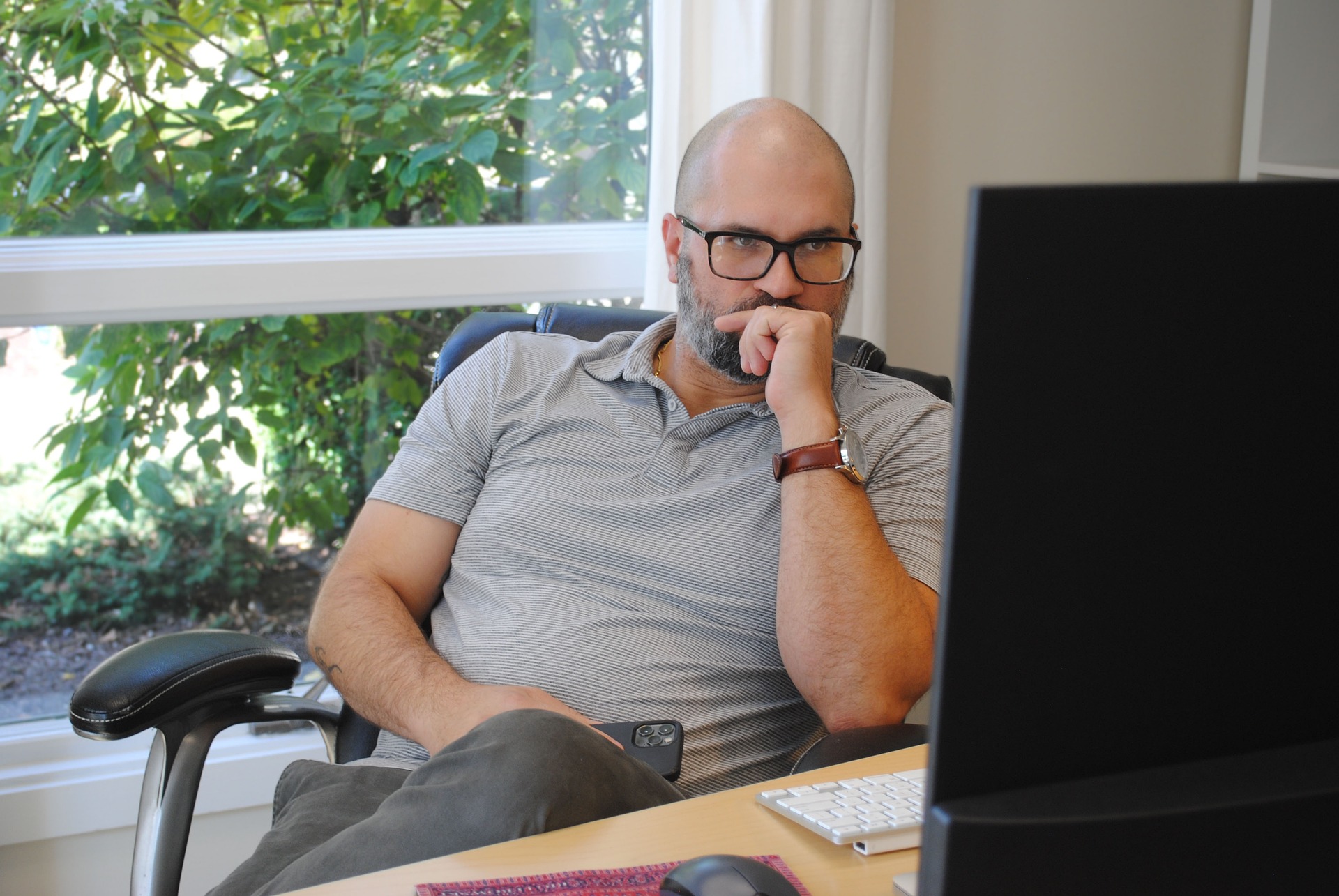“The risk of a wrong decision is preferable to the terror of indecision.” -Maimonides
Indecision is one of the most paralysing experiences that many of us face in everyday life. Whether it is making a career move, choosing a new hobby, or deciding how to spend your weekend, the constant back-and-forth can be exhausting. Worse still, indecision often leads to inaction, leaving us stuck in a state of limbo, unable to progress. Yet, there are ways to break the chains of indecision and regain control over your choices. By adopting a few key strategies, you can develop the clarity and confidence needed to make decisions with more ease.
The first step in breaking free from indecision is understanding that perfection is an illusion. We live in a world where we are constantly bombarded with images and ideas of what the “ideal” choice should look like. Whether it is through social media, success stories of others, or our own internalised expectations, there is a tendency to believe that the perfect decision is out there, waiting to be discovered if only we search long and hard enough. Many people, driven by this belief, delay making decisions because they are waiting for the perfect option to reveal itself. They enter a cycle of endless deliberation, analysing every possible outcome, and meticulously weighing the pros and cons, hoping that one flawless solution will rise above the rest.
However, the truth is, perfection is rarely, if ever, attainable. Every choice comes with its own set of uncertainties, trade-offs, and challenges. The longer you wait for the perfect choice, the more time you lose, and in doing so, you allow valuable opportunities for growth to slip away. The pursuit of perfection becomes paralysing, as it creates an unrealistic standard that can never be fully met. You may find yourself constantly revisiting the same thoughts, reconsidering your options, and ultimately remaining stagnant. This mindset not only stalls your progress but also erodes your confidence in your ability to make decisions, leading to even more indecision over time.
What matters most, in the end, is not finding the perfect solution but simply making a decision, even if it is not perfect. Progress is often made through action rather than overthinking. When you choose a path, you open the door to learning and growth, even if that choice leads to unexpected or imperfect outcomes. Every decision made, whether right or wrong, provides you with new information, insights, and experiences that help you refine your future choices. Taking action allows you to move forward, and forward movement is where growth happens.
When you realise that each decision can be a step towards learning and development, the pressure to be perfect diminishes. You begin to understand that it is not about getting everything right all the time, but about embracing the process of trial and error. Mistakes or suboptimal outcomes are not the end of the world; rather, they are valuable lessons that contribute to your personal evolution. By letting go of the idea that there is a singular perfect solution, you create space for flexibility and adaptability, which in turn fosters resilience. The goal shifts from finding perfection to making meaningful progress, and with that shift, the fear of deciding lessens.
Breaking free from indecision begins with accepting that perfection is an illusion, and that real growth lies in the courage to act, learn, and evolve.
“Whatever things you go through, you stay true to who you are and your core values.” -Sophie Gregoire Trudeau
Another powerful way to overcome indecision is to focus on your values. In today’s fast-paced, hyper-connected world, it is easy to become overwhelmed by the constant barrage of opinions and advice from others. Whether it is the expectations placed on you by family, the opinions of friends, or the broader societal pressures that dictate what success or happiness should look like, these external influences can easily cloud your judgement. It becomes increasingly difficult to discern what you genuinely want versus what others expect of you. This noise from the outside world can pull you in different directions, leaving you feeling stuck in a state of indecision, unsure which path to take.
To break free from this external pull, it is essential to take a step back and reconnect with what truly matters to you. This means tuning out the voices of others, even if only temporarily, and engaging in self-reflection. Ask yourself, “What aligns with my core values? What is important to me at my very foundation?” Your core values are the guiding principles that shape who you are and how you want to live your life. They are the deeply held beliefs that define your sense of purpose and meaning. When you base your decisions on these values, they are more likely to resonate with who you are at your core, rather than being driven by fleeting trends or the expectations of others.
Take, for example, a decision about a career change. If you find yourself torn between staying in a stable job that offers financial security but little personal fulfilment, or pursuing a passion that aligns with your creative aspirations, grounding the decision in your values can provide clarity. If financial security is a core value, then staying in your current job may feel more aligned with your life goals. But if personal growth, creativity, and living with purpose are values that you hold dear, then pursuing your passion may feel like a more authentic choice. By weighing your decision against what truly matters to you, the answer becomes clearer, and the choice feels more intentional.
When your decisions are guided by your values, they also carry a sense of authenticity. You are no longer making choices based on what others expect or what seems right on the surface. Instead, you are making decisions that reflect your personal goals, dreams, and vision for your life. This not only helps to reduce the anxiety that often accompanies difficult choices but also brings a sense of confidence and peace in the process. When you are aligned with your values, your decisions feel right because they are in tune with who you are.
Moreover, grounding your decisions in your values provides you with a compass to navigate through life’s complexities. In a world full of noise, distractions, and endless options, having a strong connection to your values simplifies the decision-making process. It eliminates the need to please everyone or meet society’s ever-changing expectations. Instead, your choices are rooted in a sense of purpose, which brings clarity and focus. This alignment between your values and decisions fosters a greater sense of self-awareness, allowing you to live a life that is true to who you are.
Ultimately, focusing on your values makes the decision-making process smoother and more fulfilling. When you operate from a place of authenticity and purpose, you are more likely to make choices that lead to long-term satisfaction and personal growth. It is not about finding the “right” answer according to others, but about making decisions that feel right for you. When you trust that your values will guide you toward the best path, indecision fades away, leaving you with a clearer sense of direction and confidence in your ability to make choices that align with your true self.
“Trust yourself, you know more than you think you do”. -Benjamin Spock
Finally, breaking the cycle of indecision requires cultivating trust in yourself. Self-trust is the foundation that allows you to move through life with confidence, even when faced with difficult or uncertain choices. For many, indecision stems from a deep-seated fear of failure or making the wrong choice. We often second-guess our abilities, replaying different scenarios in our minds and agonising over potential outcomes. The worry of regret looms large, and as a result, we become paralysed, stuck in the fear of making a mistake that could somehow derail our future. But the reality is that no one can predict the future with certainty, and no decision is guaranteed to be the “right” one. What truly matters is your ability to trust yourself to handle whatever comes next.
Building self-trust is essential if you want to break free from this pattern of indecision. The first step in developing this trust is to recognise and honour the decisions you have already made in your life, whether big or small. Too often, we overlook the choices we have made in the past, or we dismiss them as unimportant. Yet, each decision has shaped who you are today and has brought with it valuable lessons. Take a moment to reflect on your past experiences and acknowledge the ways in which you have grown because of those decisions. Even if some choices did not lead to the outcome you hoped for, they still provided you with important insights and personal growth. This process of reflection is not about perfection; it is about growth and self-awareness.
You may find that even your so-called “wrong” decisions have played a crucial role in your development. Mistakes, missteps, and detours often lead to unexpected opportunities for learning. Perhaps you took a job that did not turn out as planned, but in doing so, you discovered new skills or clarified what truly matters to you in your career. Maybe a relationship ended in disappointment, but it taught you about your own boundaries, needs, or emotional resilience. These “wrong” decisions are not failures; they are part of your journey toward a more self-aware and authentic version of yourself.
When you learn to trust yourself, you come to understand that not every decision will be perfect—and that is okay. Life is full of uncertainties, and no one can predict all the variables involved in a choice. What you can control, however, is your ability to navigate the consequences of your decisions. By trusting in your resilience, adaptability, and capacity to learn, you begin to see decision-making as less of a high-stakes gamble and more of an opportunity for growth. Each choice, whether successful or not, adds to your body of experience and strengthens your ability to face future challenges with greater clarity and confidence.
Self-trust also involves accepting that mistakes are a natural part of life. Everyone, no matter how experienced or knowledgeable, makes decisions that do not always pan out. The difference between those who remain stuck in indecision and those who move forward is the ability to accept and learn from those mistakes without being consumed by fear or regret. When you trust yourself, you can make decisions with the understanding that, even if things do not go as planned, you will be able to adjust and find a new way forward.
As you cultivate self-trust, decision-making becomes less daunting. The hesitation and second-guessing that often accompany indecision begin to fade, replaced by a quiet confidence in your ability to manage whatever comes next. You begin to realise that the act of deciding is a powerful step forward, regardless of the outcome. It is a declaration of your belief in your own capacity to navigate life’s complexities and uncertainties.
Ultimately, breaking the cycle of indecision is about shifting your mindset from one of fear and doubt to one of trust and empowerment. When you trust yourself, you stop waiting for external validation or guarantees of success. Instead, you step into your own power, knowing that no matter what path you choose, you have the inner resources to face the challenges and opportunities ahead. And with that trust, making decisions becomes less about avoiding mistakes and more about embracing the adventure of life itself.
So, in conclusion, breaking the chains of indecision is about letting go of the pursuit of perfection, aligning your decisions with your values, and trusting your ability to navigate the outcomes. Indecision, when left unchecked, can hold you back from opportunities and growth. However, by taking decisive action, you will not only move forward but also learn more about yourself in the process. Decisions are rarely final; they are simply points along the journey of life, helping to shape your path. So, embrace the discomfort of making decisions, knowing that with each choice, you are breaking free from the chains of indecision and creating momentum for a more fulfilling life.








